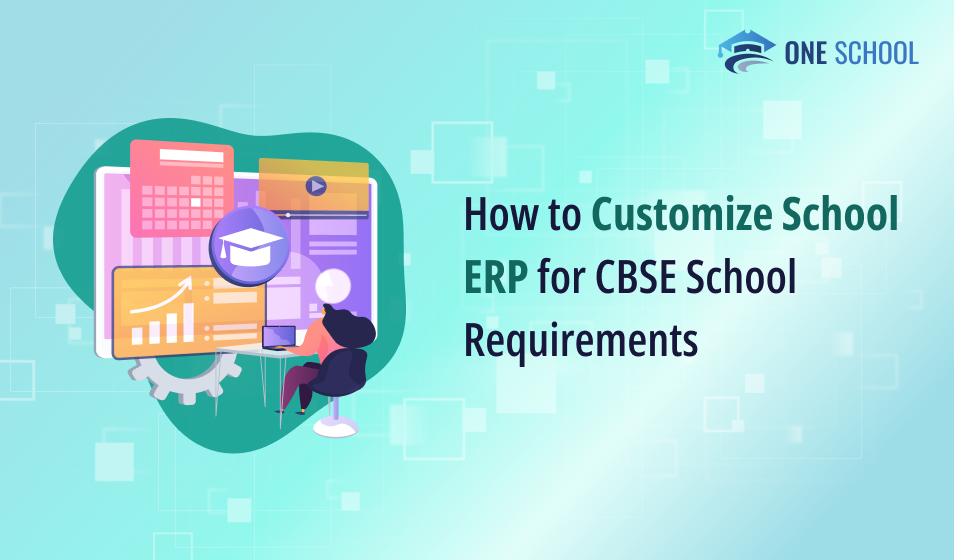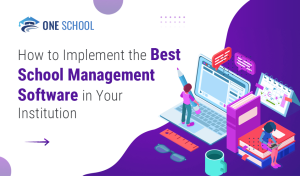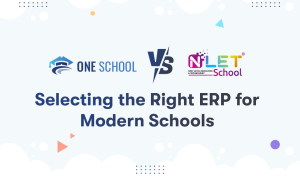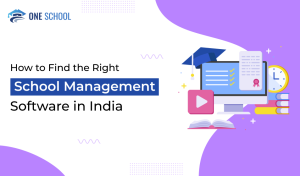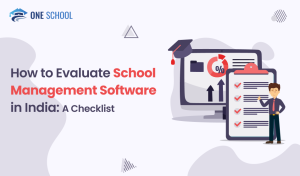Why CBSE Schools Need Custom School ERP Software
Running a CBSE-affiliated school is no small feat. Whether you’re responsible for daily administration, academic planning, or compliance. You likely face an overwhelming maze of information flow, manual paperwork, and fragmented systems. For many business decision-makers and school professionals, disjointed processes lead to missed deadlines. Reporting headaches, compliance risks, and wasted operational hours. The pain intensifies when a generic school ERP (Enterprise Resource Planning) solution falls short. Unable to adapt to CBSE-mandated workflows, exam policies, and academic structures. Sticking to an ill-fitting system undermines staff productivity. And the very educational outcomes you strive to deliver.
But what if your School ERP could work for your school, not the other way around?
Understanding Customization: Why One-Size-Fits-All Fails
CBSE schools have some pretty specific needs when it comes to how they grade, how they run their schedules, and even how they report stuff. Because of all these unique things, most regular, ready-made school management software doesn’t really cut it. Causing users to create manual workarounds or juggle multiple software tools. Customization is the answer. It involves tailoring system modules, workflows, and dashboards to mirror how your school actually operates. Down to every nuanced detail.
Key CBSE Requirements That Demand Customization
1. Academic Workflows & Assessment
- CBSE Report Cards: Automated generation per prescribed formats. Including co-scholastic skills and CCE (Continuous and Comprehensive Evaluation) integration.
- Grading & Attendance: Flexible setup for grades, marks, and attendance patterns matching CBSE norms.
- Teacher Lesson Planning: Custom forms for lesson plan approval and audit.
2. Compliance & Reporting
- Periodic Returns: Automated preparation of CBSE-affiliated reports. SA-1, SA-2, annual statements, and affiliated documentation.
- Role-Based Access: Grants access only to principals, teachers, and administrative staff to the modules of relevance to their work.
3. Communication & Stakeholder Engagement
- Parent Notifications: Multilingual, customizable notification/SMS against CBSE exam and fee timetables.
- Mobile Accessibility: CBSE-focused dashboards for on-the-go updates and approvals.
4. Data Security & Integrity
- Data Privacy: Role-based permissions, ISO-certified security features, automated backups, and clear ownership policies. Critical for sensitive student and staff data demanded by CBSE.
Practical Steps to Customizing Your School ERP
1. Start with a Detailed Needs Assessment
Map all CBSE-mandated workflows: Admissions process, exam cycles, timetable structures, report card designs, and statutory documentation.
Audit current bottlenecks: Identify slow functions. Error-prone, or reliant on redundant manual entry.
2. Collaborate with Stakeholders
Involve department heads, teachers, IT staff, and administrative teams. Each may have essential insights about necessary workflow adaptations.
3. Select an ERP with Proven Customization Capabilities
Opt for a platform advertised as “fully customizable,” supporting branding, field modification, integration with third-party tools.
4. Integrate and Automate for Efficiency
Ensure the ERP can pull data automatically from admissions, attendance, examination, and fee systems. Saving time and minimizing errors.
5. Prioritize Training and Ongoing Support
To maximize adoption, invest in thorough user training and ongoing technical support. Choose vendors with a reputation for reliability and round-the-clock assistance.
Benefits: Why Customization Is an Investment, Not an Expense
- Quicker Processes: Duplication of entries is eliminated by automated workflows.
- Precise Reporting and Compliance: Instant generation of error-free reports.
- Improved Decision Making: Direct access to precise, school-level data in real-time.
- Improved Student and Parent Experience: On-time communication, progress reports, and ease of fee payments.
- Scalability and Flexibility: Add new features or modules easily as your school expands.
- Less Administrative Errors: Automation and streamlined data flows minimize errors.
Avoiding Common Pitfalls
- Don’t Underestimate Change Management: It’s a cultural transformation. Appoint change champions, feedback loops, and reward early success.
- Be aware of Vendor Lock-In: Ensure data ownership and export options are clear.
- Demand Transparency: Ask for documentation, cost breakdowns, and support clarity.
The Conclusion
The future of efficient, transparent, and responsive school administration lies in technology that adapts to you, not the reverse. Personalizing your ERP solution is an investment for the future—one that returns in performance, compliance, and stakeholder satisfaction. As CBSE regulations change and school requirements expand, only a flexible, customized platform will help you lead the way.
Don’t be limited by “one-size-fits-all” software. Start a customization strategy today. Empower your team, and witness the shift from inefficiency to orchestrated success. Your vision for educational greatness deserves a system that supports it. Begin your school’s customization today with OneSchool.
Ready to Modernize Your School’s Operations?
Discover how OneSchool ERP can streamline administration, enhance communication, and support CBSE compliance – all in one platform.
Talk to our team or see it in action.

At OneSchool, Nishant Joshi manages projects centered on school ERP solutions as a technology strategist and project manager. He focuses on putting in place and refining digital systems that support improved educational outcomes, increase administrative effectiveness, and improve school operations.

